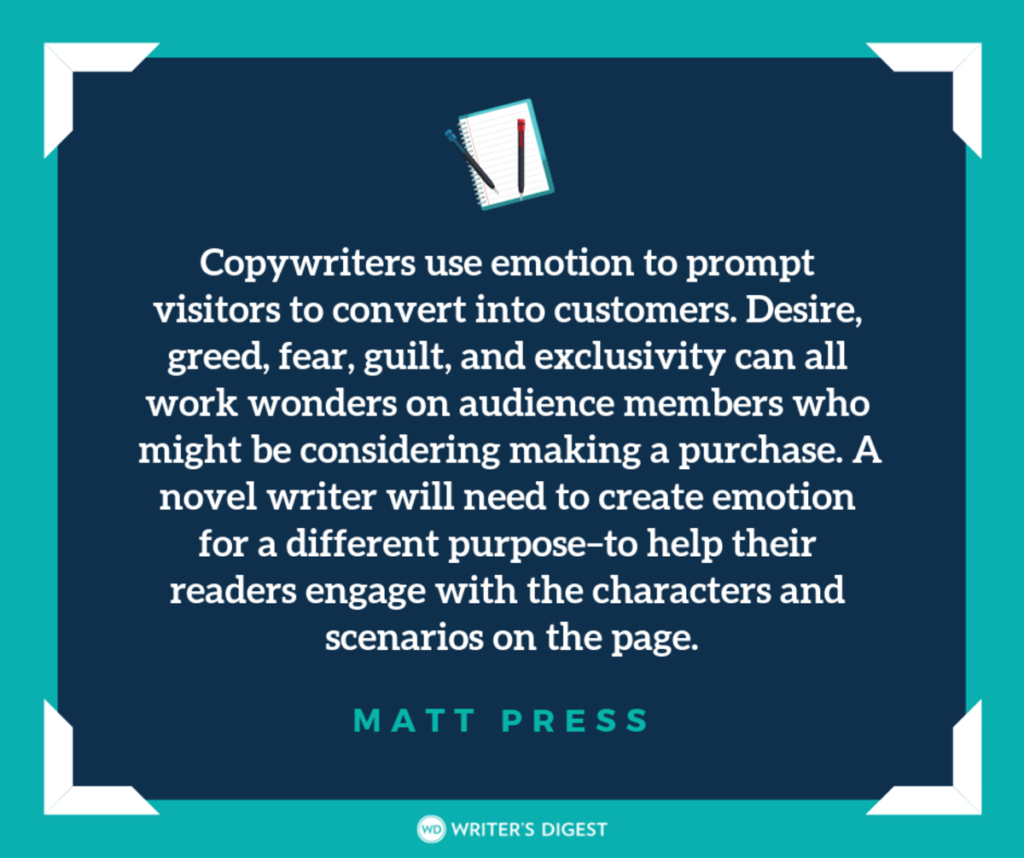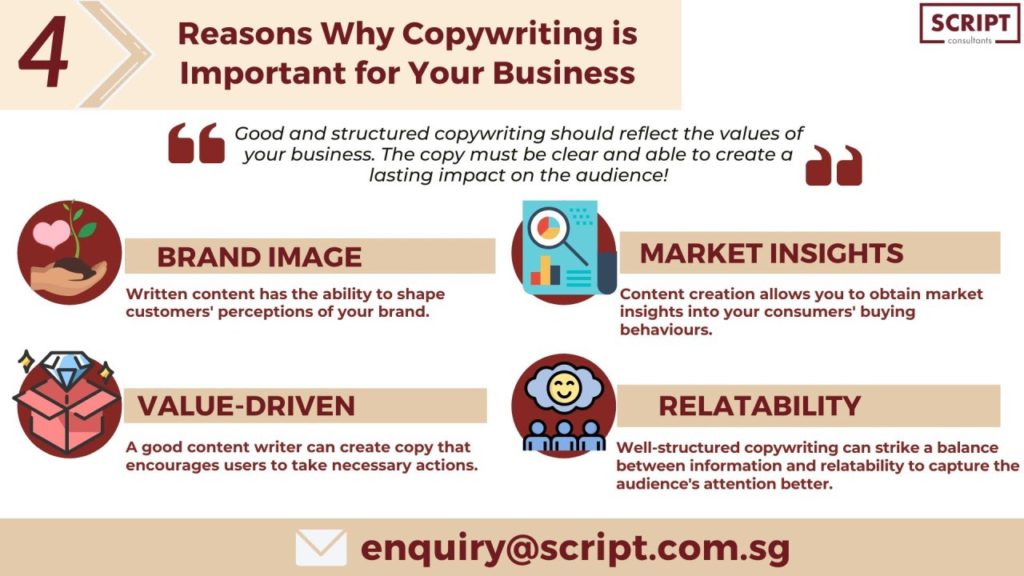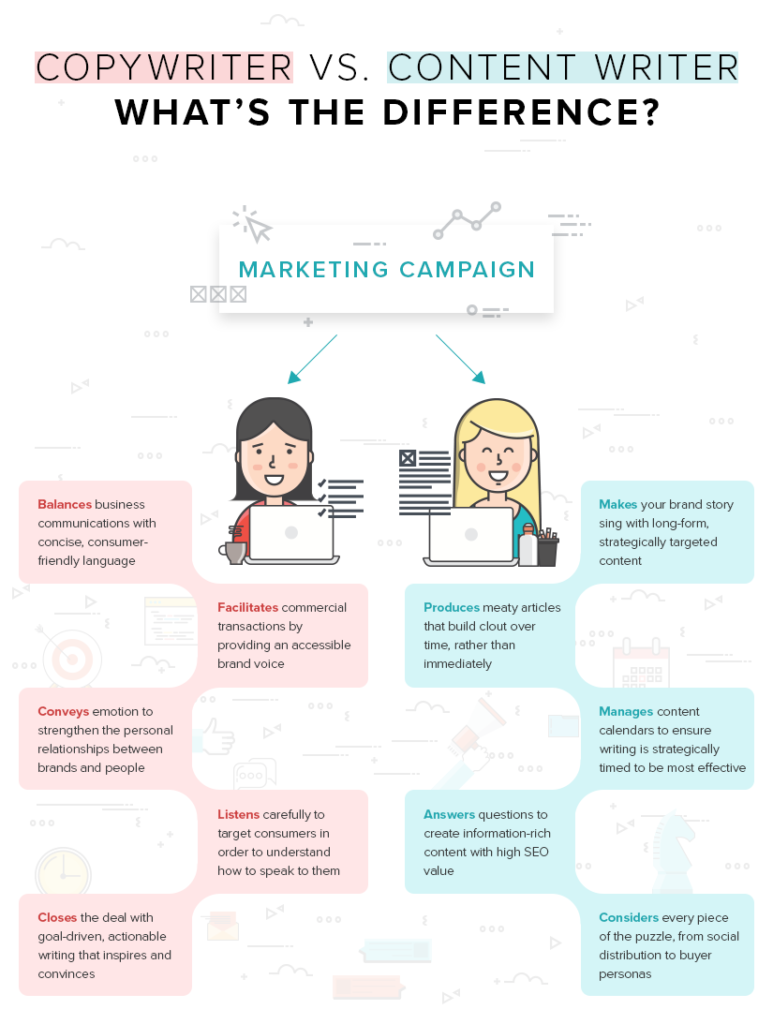
Table Of Contents
- Overview Of Copywriting
- The 5 Best Books On Copywriting (For Beginners And Pros)
- Key Takeaways
- Conclusion
- FAQs
What is copywriting, exactly? Copywriting is the art and science of creating a copy (words used on websites, advertisements, promotional materials, and so on) that promotes your product or service and persuades prospective consumers to take action. In many respects, it’s analogous to hiring a single salesperson to contact all your consumers. A sales staff contacts clients one at a time, but a copywriter interacts with all of them at once via billboards, magazine advertising, sales letters, blog posts, and other means.

A comprehensive digital marketing strategy includes design, content marketing, SEO, and growth hacking, but copywriting is the glue that holds it all together. Copy offers to mean to your design and serves as the foundation for your content marketing, SEO, and growth hacking efforts. Writing better copy allows you to convert more readers into customers, and we want to present you with a tutorial that will help you write online and offline content.
There is no limit to the growth your business may enjoy if you can use your writing to convey an engaging story while convincing buyers of the necessity for your goods. However, if you are forced to write generic emails, adverts, and sales letters, you may expect to struggle to achieve a single sale for the rest of your business career.

Copywriting, like any other creative expression, isn’t always straightforward. Starting at the dreaded blank page may be torturous for copywriters of all levels. Whether you’re just starting as a junior copywriter or a seasoned veteran, you’ll be familiar with this experience.
Fortunately, there are dozens of excellent books on copywriting available that cover issues like content marketing, producing successful material, influencing readers, generating excellent leads. A number of them also go over selling psychology.
This article lists some of the best copywriting books for beginners.
Overview Of Copywriting
In marketing, the word ‘Copywriting’ refers to the process of writing copy. In advertising, the phrase ‘copy’ refers to text. As a result, ‘copywriters’ are writers who come up with slogans, taglines, and other promotional statements. They provide text for various marketing metrics and are critical to a marketing campaign’s success.
When it comes to copywriting, there is a lot of misunderstanding. No, it’s not only about who has the right to publish a book or a photograph (that’s copyright), nor is it just about writing blogs or social media postings – through those two may blur the borders between copywriting and marketing depending on your objectives. Copywriting, like content writing, is an essential aspect of web marketing. Pictures and music play a vital role in advertising because they are simple ways to elicit emotion and connect with customers.
Different writing styles necessitate a unique set of criteria for determining whether or not the text is impactful. On the surface, copywriting and content writing appear to be two sides of the same coin; nonetheless, there are significant variations between the two writing approaches.
So, what’s the distinction between copywriting and content creation? In a nutshell, copywriting is any writing done for marketing goals. On the other hand, content writing is a more specialized type of writing that is focused on one or more content marketing objectives. Copywriting objectives include advertising a product or brand, driving conversions/sales, and encouraging a direct reaction. Content objectives include increasing customer rapport/trust, creating a favorable brand connection, and increasing domain authority.

Copywriting is the skill of combining content with marketing- and target-group-specific demands to persuade a potential client on content and structural level and thereby encourage them to take the required action.

The 5 Best Books On Copywriting (For Beginners And Pros)
Here are the top 5 books on copywriting that you should read immediately.
1. Influence by Robert Cialdini
This is the first book we believe a copywriter must-read. In fact, Cialdini has a new sequel out now called Persuasion, which I strongly recommend you read as well. The six shortcuts Cialdini discusses are scarcity, authority, consistency, likeability, consensus or social evidence, and reciprocity. These shortcuts influence human behavior and are worth noting as a checklist.
2. The Elements of Style by William Strunk Jr.
The Elements of Style is a must-have book for anybody who works with the written word – or, really, anyone with a website that uses online copy. This book, written about 100 years ago, is still significant today, describing the exact laws regarding using words while writing.
3. The Copywriters Handbook by Robert W. Bly
With over 35 years of experience as a direct response copywriter, Robert W Bly is the type of industry veteran who can create a book called The Copywriter’s Handbook. And he did write it back in 1985. In its third edition, this book merits the label “handbook,” containing some of the most beneficial tactical and strategic information a copywriter could require. While many of the most outstanding books to learn copywriting appear to concentrate on the theory behind advertising and ad text, The Copywriter’s Handbook focuses on the hard skills required to be a successful copywriter. For example, the author teaches readers how to begin a sales letter, how to ensure your email campaigns are opened, how to craft compelling headlines, and much more.
4. The Boron Letters by Gary Halbert
He blends life advice and personal experiences with instruction on using direct response text to promote a product or service. This book is an excellent pick if you appreciate strong writing or are a creative writer because it is relatively story-driven. “Everyone wants to climb the mountain,” Halbert says, “but the main difference between those at the summit and those still at the bottom is just showing up tomorrow to give it one more attempt.”
5. Predictably Irrational by Dan Ariely
The book talks about the unseen forces that influence human decisions. It’s all based on psychology, and it’s great. Dan cites a slew of interesting research and figures about why people act the way they do and why they purchase the way they do. The notion of decoy pricing was one that is particularly striking. It’s now a standard in virtually all sales letters and offers. So, without a doubt, get your hands on it.
Key Takeaways
- The term ‘copywriting’ is taken from a secondary definition of the word “copy,” which describes content for an article or advertising in this context.
- While “copy” can refer to writing intended for publication on any platform (including news pieces), marketers often use the term to refer to any text used to advertise a product.
- Writers, entrepreneurs, and business owners may benefit from learning how to sell with words. The books include a plethora of valuable tips, methods, and frameworks. Choose one, read it, and put the ideas into action right now.
- Whether you’re a copywriter yourself or a company owner trying to improve your writing, any of these books will come in handy. Alternatively, you might look at some of the other resources to assist you in learning to copywrite.
- That being said, if all of this sounds like too much effort for you, you can always employ a copywriter.
Conclusion
You wouldn’t engage just any writer to create a great piece, just as you wouldn’t hire a plumber to mend a leaky roof. Marketers who want to be successful with their content efforts must ensure that the content writer they deal with is experienced in developing material suited for the specific aims of their content marketing campaign. Copywriting is a synonym for “marketing writing.” It refers to writing employed in some way to sell a product. When someone writes copy, they create the text for an advertisement, website, brochure, catalog, direct mail piece, tagline, white paper, social media post, or any other marketing communication.
Most people understand what copywriting is and how it is employed, but it is typical to underestimate its influence on corporate success. Some organizations create generic content for their website or marketing materials in the hope that their audience would relate to it. Then they wonder why it fails to pique their audience’s interest. Consider how your company handles the requirement for copy—how you go about it. Too many organizations overlook the value of effective copywriting because they fail to see that solid content is a potent selling tool that can convert strangers and vaguely interested readers into paying customers.
FAQs
Reading a copywriting book can help you master the craft. Dan Kennedy’s The Ultimate Sales Letter and Robert Cialdini’s Influence are also excellent selections. Consider taking a copywriting course as well.
The best books are – Influence by Robert Cialdini, The Elements of Style by William Strunk Jr., The Copywriters Handbook by Robert W. Bly, The Boron Letters by Gary Halbert, Predictably Irrational by Dan Ariely. All of these books are amazing, and you must read them today!
Learning copywriting on your own can be a challenging process. But, if you upskill constantly and use tried and tested methods, it isn’t that difficult. And this doesn’t only include writing methods – employ the right resources and literature to hone your skills.
You must be able to write well to be a great copywriter. This is also not as straightforward as it appears. You must be fluent in grammar, language, punctuation, spelling, adjectives and have a large vocabulary to draw from while writing. You may learn to write correctly by devoting a little time each day.
YouTube is fantastic. Everything is readily available there. Passively learning new things while kicking your feet up or commuting is possible. However, there aren’t many channels that cover copywriting. As a result, selecting the ideal one may be difficult.
Latest Blogs
Explore how Google’s 2025 AI search updates triggered ranking chaos. Learn actionable strategies to adapt your SEO for AI Overviews, zero-click searches, and SERP volatility. Stay ahead now.
Learn how to rank on AI search engines like ChatGPT, Perplexity, and Gemini by optimizing your content for authority, structure, and relevance. Stay ahead in AI-driven search with this strategic guide.
Explore the best healthcare SEO services for your medical practice. Improve online visibility and effectively reach more patients in need of your services.
Get your hands on the latest news!
Similar Posts

B2C Marketing
5 mins read
Top Choices for Best Content Marketing Services in B2B Industries

Artificial Intelligence
5 mins read
How A Lead Generation Specialist Can Use AI-Powered Content Funnels to Drive Conversions

Artificial Intelligence
4 mins read